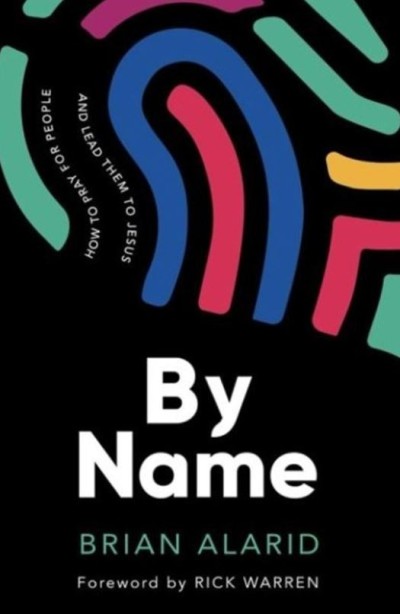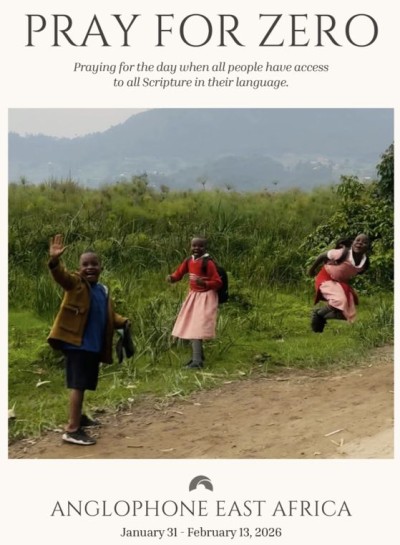Prayer is at the heart of the Christian life — yet many believers quietly wonder if they are really praying effectively. Why do some prayers seem to shape history, while others feel unfocused or weary? How do we persevere in prayer when answers are delayed, opposition is strong, or the world feels overwhelming?
The 7 Keys to Effective Prayer podcast series is an invitation to rediscover prayer as God intended it: rooted in Scripture, sustained by faith, and aligned with His purposes for the nations.
Hosted by Dr. Jason Hubbard, Director of International Prayer Connect, this seven-part teaching series draws on biblical foundations, historic prayer movements, and decades of experience mobilising prayer around the world. Jason brings clarity, depth, and pastoral warmth as he explores seven essential principles that help believers pray with confidence, persistence, and purpose.
These teachings are inspired in part by the remarkable legacy of the Moravian community at Herrnhut, Germany, led by Count Zinzendorf — a movement where believers committed to continuous, day-and-night prayer for over one hundred years, sparking extraordinary missionary fruit across the nations. Their story reminds us that when prayer is anchored in God’s heart, sustained over time, and shared by a community, it becomes a powerful force for spiritual transformation.
Each episode focuses on one key, offering biblical insight and practical encouragement for personal and corporate prayer:
The Seven Keys
- Worship Based Prayer
- Abiding in Christ
- Asking in Jesus’ Name
- Praying God’s Word
- Breakthrough Prayer
- Desperate Prayer
- Unceasing Prayer
The 7 Keys to Effective Prayer podcast launches on 1 March 2026, with new episodes released weekly. Listeners are encouraged not only to listen, but to reflect, apply, and allow the Holy Spirit to deepen their own prayer lives.
Our prayer is simple: that through this series, believers around the world will be freshly equipped to pray — faithfully, biblically, and expectantly — and to see God move in ways that bring glory to Jesus and advance His Kingdom.
Join the Global Family 24-7 Prayer Room: A Worldwide Cry for Revival and Harvest
What if your prayer life could join with believers from every continent, every denomination, and every generation in one unceasing, worship-saturated chorus lifted up before the throne of God?
That’s the heartbeat behind the Global Family 24-7 Prayer Room - an online, around-the-clock, around-the-globe prayer movement inviting Christians everywhere to pray, worship, and intercede for the world.
Launched in January 2021, this virtual prayer room has been sustained by a network of committed prayer teams covering all 168 hours of the week — each hour led by intercessors praying in many languages and time zones. It’s a living expression of Jesus’ command to pray earnestly for the harvest, knowing that the fields are ripe but the labourers are few. ([Global Family Online 24/7 Prayer Room][2])
At its core, the Global Family Prayer Room is more than just a schedule of prayer times: it’s a tangible experience of the global Church becoming the global family. When you enter the Zoom room, you’ll find brothers and sisters worshipping and petitioning God together — sometimes in joyful praise, sometimes in deep intercession, always anchored in Scripture and the person of Jesus Christ.
This ministry is a collaboration of international ministries and volunteers under the umbrella of International Prayer Connect. The vision is simple yet profound: to see God glorified, nations transformed, and labourers sent into every harvest field as believers unite in continuous prayer.
You can participate in a way that suits your season and calling. Drop in to pray or worship, or go deeper by signing up with a team to lead one hour each week consistently. Whether it’s five minutes or five hours, your prayers will join a living, global chorus lifting up the name of Jesus before heaven and earth.
Don’t miss this opportunity to be part of something eternal — an unbroken prayer movement that reflects the heart of God for His Church and the world.
Adopting an unreached people group in prayer is God’s supernatural way for mission breakthroughs, in which all of us Jesus followers can and should participate! Not all of us are called to be field missionaries, but we are all called to engage in His Great Commission through prayer.
As Jesus commanded, "Pray the Lord of the harvest that He will send workers into his harvest field." (Matt. 9:37- 38). He also affirmed, "My house will be called a house of prayer for all nations"(Mk. 11:17), with "nations" in His Great Commission of Mt. 28:19 and elsewhere in the Bible, always referring to ethne, meaning ethnic groups and tribes in the original Greek text, not the modern geopolitical countries so often mistakenly substituted for the Biblical prayer and mission focus.
That is also the case in Matthew 24:14 when He said that "this gospel of the kingdom will be preached in the whole world as a testimony to all "nations" (= panta ta ethne or all ethnic people groups), and then the end will come." If we engage in prayer for specific unreached peoples, we will be doing our part to bring about the climax of human history and the return of the King of Kings!
 During the AD2000 and Beyond Movement in the 1990's, many Unreached Peoples conferences, seminars and other initiatives were held that resulted in hundreds of new interdenominational networks focused on specific UPGs in about 80 countries. Those of us forming the International Prayer Council in 2001 and 2002, now called International Prayer Connect (www.ipcprayer.org), also focused on mission for the UPGs as one of our main objectives when we were seeking to develop global and regional networks for the growing international prayer movement. The Lord was strongly emphasizing to many of us how crucial it was to integrate informed prayer with Jesus' mission for all the unreached ethne of our world.
During the AD2000 and Beyond Movement in the 1990's, many Unreached Peoples conferences, seminars and other initiatives were held that resulted in hundreds of new interdenominational networks focused on specific UPGs in about 80 countries. Those of us forming the International Prayer Council in 2001 and 2002, now called International Prayer Connect (www.ipcprayer.org), also focused on mission for the UPGs as one of our main objectives when we were seeking to develop global and regional networks for the growing international prayer movement. The Lord was strongly emphasizing to many of us how crucial it was to integrate informed prayer with Jesus' mission for all the unreached ethne of our world.
Now, an increasing number of us in both the prayer and mission movements believe that we may well be in the run-up to the return of our Lord Jesus Christ! He told us to watch for the signs of the times to know when His second coming draws near. Perhaps the most important sign is that the ethne, the ethnic people groups, who were earlier mentioned in Matthew 24:14 and 28:19, are now within the possibility of being reached with the Gospel even by 2033, as several world evangelization and Bible translation efforts now predict.
What a time to be alive and to serve the returning King of Kings!
In this possibly short time window, we need to especially multiply both prayer and mission efforts to ignite movements for Him in every one of the Frontier People Groups. These Frontier People Groups are the least reached, with only one person on average per thousand or no known Jesus followers at all. According to the Joshua Project, which has faithfully researched and kept track of the status of the unreached peoples of our world, there are still 4700+ of these Frontier People Groups. They all have little or no Christians and make up about 2 billion people or a quarter of the world's population still needing to hear about Jesus for the first time ever.
The largest 272 of these FPGs, each over one million in size, hold the majority of these desperately lost and largely forgotten people, totaling about 1.6 billion or 20% of world population. What a tragedy that so much of Jesus Christ's world-wide Church does not even know what the Great Commission is! A recent Lausanne World Evangelization report reveals that a majority of the 1,500 global Christian leaders surveyed believe that less than half of the Christians in their region can even define the Great Commission. Unless we pray, how can they be moved to care about such enormous masses of fellow human beings living in abject darkness?
Unless we heed Jesus' call to intercede, they will continue without the salvation and hope He alone provides, not only for this life but also for the age to come?
 The Joshua Project maintains the list of all the FPGs at this link: www.joshuaproject.net/frontier/interactive
The Joshua Project maintains the list of all the FPGs at this link: www.joshuaproject.net/frontier/interactive
Missiologists affirm that these largest 272 are the most strategic people groups to adopt in prayer and reach first. As they respond to the Gospel, movements for Christ developing within them will likely overflow out to the smaller FPGs in their proximity, as the powerful momentum of disciple-making and church planting will be unleashed through our focused praying and resulting efforts by missionaries and mission organizations to reach them.
The interdependent prayer and mission movements need your urgent help! We are seeking to get churches, prayer groups, youth, and children’s ministries worldwide, through as many denominations and networks as possible, to systematically adopt each one of these FPGs - one per church, prayer group, or other ministry entity, as well as by all individual caring Jesus followers.
If you and those you know are willing to engage in ongoing, in-depth prayer, God's promised breakthroughs will occur. Please see these helpful websites:
JoshuaProject.net, AIMS.org, and BlessFrontierPeoples.org. All have excellent resources about how to effectively adopt and pray for FPGs, such as prayer cards, profiles and videos. (More about that below.)
You can help bring back the King of Kings by using them yourself and sharing them with your church, prayer group or other ministry organization. Please help mobilize others to get involved and there will be synergistic impact beyond you can ask or think! (Eph. 3:20)
Jesus commanded that we His followers pray to the Lord of the harvest to send workers into His harvest field (Matthew 9:37-38). When driving the money changers out of the temple, He also exclaimed, “My house will be called a house of prayer for all"...., there's that Greek word again....ethne.” (Mark 11:17). Prayer is therefore the first order of business in reaching the unreached. It is the powerful, supernatural way in which missions will be enabled to happen, even in the most resistant people groups. When each of these FPGs are adopted for ongoing prayer that specifically focuses on them over time and preferably by multiple ministry entities, it will result in an explosive,
synergistic leap forward in seeing Jesus’ command to reach all the ethne accomplished in this decade.
 The brief video HERE, "Understanding the Remaining Mission Task" provides a helpful overview on where we are in completing this all-important mission of the Lord.
The brief video HERE, "Understanding the Remaining Mission Task" provides a helpful overview on where we are in completing this all-important mission of the Lord.
Specific prayer cards for each of these largest FPGs are available at: https://joshuaproject.net/pray/cards/frontier/4
They can be enlarged to be placed on the wall of a church or prayer group’s meeting place and/or printed to be given out as bookmarks for members' Bibles to remind them to pray regularly for the raising up of workers and movements for Christ in the people group or groups they have adopted.

Joshua Project www.joshuaproject.net has many wonderful resources to help you and others find out more about the people group you decide to adopt. A profile is linked to every prayer card with a QR code, having specific prayer points. Also, adopting entities can and should do their own further research and where possible seek to network with others who have adopted the same FPG as their focus.
In addition, a cellphone app called “Unreached of the Day” is also now available to help us pray for one of the Unreached People Groups each day (including the FPGs and those with a greater Christian presence of up to 2%). It provides a picture, profile, map where they are located, and sometimes a video.
It is also available in many of the world’s languages. Please try it yourself and share it with others HERE
We in the Unreached Peoples Task Force would deeply appreciate your help in getting this challenge out to any churches, prayer groups, youth, and children's ministries you are in touch with. We have found that it is usually best to assign just one of these FPGs to each willing ministry entity or individual praying believer, giving them a particular FPG's prayer card. Don't neglect to share this challenge with children and youth, who can also be
assigned one to keep in their prayers. As they do, God may call them in the future to go as missionaries to their respective people group!
 All 273 largest FPGs are available HERE.
All 273 largest FPGs are available HERE.
(The rest of the prayer cards for all 4700+ FPGs are accessible on the Joshua Project website as already mentioned.)
Participants can be asked to pray for the coming year and then to renew that commitment, or shift to another people group after that if they like.
Please also ask each adopting church or other ministry entity to register your and others’ commitments to your chosen FPGs (or other UPGs) so progress can be monitored at https://joshuaproject.net/get_involved/adopt
The Joshua Project team will help to track each adoption and hopefully as their team grows, connect adoptees with field teams where possible as well as communicate back how their prayers are being answered. AIMS.org can also assist you with adoption, research, prayer, and connection with those on the field seeking to reach these FPGs and other unreached people groups.
A Remarkable Testimony!
Let me close with an amazing testimony about the power of praying for a Frontier People Group. At the beginning of the 1990’s, I asked two churches in my hometown to adopt a Central Asian people group of several million with only two known Jesus followers. All the rest, as far as we knew, were Muslims. One of them I was privileged to lead to the Lord myself in an evangelistic event in southern Russia.
The other I was able to meet on a visit to the country where their people group lived. The Adopt a People Clearinghouse which existed at that time had just printed a beautiful prayer card about this almost completely unreached FPG. Using that card, church people from both churches began to pray and we began to see God’s wonders. As declared in Psalms 77:14, “You are the God who performs miracles; You display your power among the peoples.” That is exactly what we began to witness!
Shortly after the believers began to pray, quite astonishingly, our city and their capital city began a sister-city program that enabled the exchange of musicians, composers, and other cultural programs. The symphony orchestra of that country then decided to do a concert the night before they separated from the Soviet Union as part of their independence celebration. The music of my grandfather, who had been Dean of Fine Arts at our university and a well-known local composer, was chosen to be performed. He had recently passed away and my parents could not go, so I was chosen to do so.
At the concert, in that Central Asian nation, the conductor asked me to say some words about my grandfather, so I told them about his search for God through his composing, and we read Psalm 23, his favorite Psalm. The conductor and all the musicians, as well as the audience that included some government officials, were all Muslims, yet they loved my grandfather’s music and Psalm 23 since they came from a shepherd culture!
I also found out that my remarks had been included along with the concert on national radio! In addition, a non-residential missionary who had a heart for that people group had come with me and through that experience was given an open door and office to bring in university lecturers and agricultural development experts who were all Jesus followers. They eventually led hundreds to Christ, thanks be to the Lord!
 The favor God gave in answer to the prayers of believers back home was so amazing! After the concert, the conductor asked if I could come back the following year for another such concert of my grandfather’s music which I did. As we were sitting in the audience before the orchestra began to play, the conductor suddenly turned around and said. “Now, can we have John Robb come up to the mic and tell us about God?”
The favor God gave in answer to the prayers of believers back home was so amazing! After the concert, the conductor asked if I could come back the following year for another such concert of my grandfather’s music which I did. As we were sitting in the audience before the orchestra began to play, the conductor suddenly turned around and said. “Now, can we have John Robb come up to the mic and tell us about God?”
Talk about always being ready to share at a moment’s notice! I did my best to follow up on what was said the year before and again they seemed to be so open and receptive for being nominal Muslims. “What is this glory?”, one of the songs that was sung during that concert, was my granddad’s touching Christmas piece about the shepherds welcoming the birth of Jesus. It has been said that you can preach to Muslims, and they might kill you, but you can sing to them, and they will love you! That is what happened apparently since I am still alive and can recount this wonderful God-story to you!
What an illustration of the power of focused prayer to bring about breakthroughs among unreached people groups!
That must be the reason that Jesus stressed that prayer was the essential thing for mission breakthrough when He said:
“The harvest is plentiful but the workers are few. Ask the Lord of the harvest, therefore, to send out workers into His harvest field.” (Matthew 9:37-38)
God owns the harvest and the process of reaping it as its Lord. However, what He really needs and wants is our focused, persistent prayer, through which He will even cause people groups who are resistant due to demonic deception and bondage to become receptive to the Gospel. They will then experience dreams and visions, signs and wonders and receive those workers the Lord has specially chosen and gifted to reach that particular people group with its unique culture and worldview. Here lies the mystery and potency of prayer for the remaining thousands of people groups who have never heard the Gospel.
That is why the most strategic thing we can do, as instructed by the Master Missiologist Himself, is to pray and get others to do so also.
Therefore, in the run-up to His return, along with millions of other Jesus followers, let us now respond to His command, utilizing fully the supernatural power of intercessory prayer, so that all the Frontier People Groups will hear His Good News and have movements for Him.
Then, one day, perhaps sooner than we think, we will all together welcome back the Lord Jesus, returning in His awesome glory as King of Kings and Lord of Lords!
 John Robb - Coordinator, Unreached Peoples Task Force
John Robb - Coordinator, Unreached Peoples Task Force
Chairman, Transformation Prayer Foundation
www.transformationprayerfoundation.org
Founder/former Chairman, International Prayer Connect www.ipcprayer.org
Former Unreached Peoples Track Coordinator, AD2000 and Beyond Movement
Email: This email address is being protected from spambots. You need JavaScript enabled to view it.
For the prayer cards for the 273 largest FPGs, click / scan this QR code:
https://www.ipcprayer.org/images/2026/FPGs_273_largest_Joshua-Project-Prayer-Cards.pdf
 FOCUS! – The Power of People Group Thinking – John D Robb
FOCUS! – The Power of People Group Thinking – John D Robb
If you would like to read John's book, Focus: the Power of People Group Thinking which is a manual on reaching the unreached translated into 27 languages used by missionaries in various parts of the world, you can download it free of charge HERE or through this QR code:
Links to all IPC Projects:
https://linktr.ee/ipcprayer
IPC - 110 Cities - Global Days of Prayer 2026
Buddhist People - February 17
Muslim People - March 16
Pentecost - Worldwide Church - May 24
Jewish People - September 21
Hindu People - November 8
www.110cities.com | Daily Prayer Fuel Sign Up
Global Family 24-7 Prayer Room
www.globalfamily24-7prayer.org/
Prayer Covenant for Children Mobile App
theprayercovenant.org/mobileapp/
Light of the World Movie
www.lightoftheworld.com/
Interseed House of Prayer App
prod.global.interseed.io/link/groups?id=146
Shine! – All age prayers for the ‘Light of the World’ movie – 10th Feb / 10th March 2026
https://www.2bc.world/shine
7 Days of Prayer for Buddhist Peoples – 10-16 Feb 2026
www.110cities.com
Global Day of Prayer for Buddhist Peoples
17th Feb 2026
www.110cities.com
10 Days International Summit, Dubai - Feb 1–7 www.10days.net
24:14 '6/7 Gathering' Bali - Feb 8–12 2414now.net/pray/
Philippines Mission / Gathering - April 6–13
Envision Asia Conference, Batam - April 27–30
www.envision2026.id/
Oceania Prayer Connect – Vanuatu, May 19–20
Pentecost 26 – Sydney - June 13
https://events.humanitix.com/pentecost-26-australia-arise
The Arising 2026, Kingston, Jamaica - 24-25 July
www.spurropen.com/Arising2026JM
Global Day of Prayer for Korea - Aug 15
CLAMOR 2026 Summit, Curitiba, Brazil - Oct 8–11 www.clamor.global/
Billion Soul Harvest Conference Asia – Batam, Indonesia – 24-27 Nov 2026
By Name: How to Pray for People and Lead Them to Jesus
Billions of people don’t know Jesus, but God has given you and me the power to change that — and it all starts with prayer.
As you pray for people by name, Jesus gives you His love for them and begins to open their hearts to the Gospel.
In By Name, Brian Alarid will equip and inspire you to pray for people and lead them to Jesus using the five lifestyle habits that Jesus modeled: pray, listen, eat, serve, and share.
This book will help you love people like Jesus and impact your friends, family, neighbors, classmates, and co-workers for eternity.
Brian Alarid is the President and Founder of America Prays and World Prays and the Chairman of Pray For All.
He is the author of two books: When People Pray: What Happens When Ordinary People Pray to an Extraordinary God and By Name: How to pray for people and lead them to Jesus.
Brian has a Master’s Degree in Organizational Leadership from Regent University. He has been married to Mercy Alarid for twenty-seven years. They reside in Guatemala City with their three children.
Order ‘By Name’ on Amazon (new from $12.00)
Across the world, millions of people are still waiting to encounter God’s Word in a language they understand best - the language of home, heart, and daily life. The Seed Company prayer guide invites us to step into this global story with informed, faith-filled intercession.
In Anglophone East Africa, countries such as Uganda, Ethiopia, Kenya, and Tanzania have widespread use of English in education and ministry. Yet true heart transformation happens when Scripture is heard in local languages.
In this region alone, 57.2 million people still live without the full Bible, including communities with no Scripture at all. Amid drought, political instability, and disease, local believers and translation teams continue to serve faithfully, pressing on so families and communities can meet Jesus through His Word.
The guide also brings real-time prayer updates from around the world. Translation teams working in volatile and restricted environments face isolation, disrupted communications, and serious security risks. Others give thanks for breakthroughs - such as reliable solar power enabling ongoing work - or ask for prayer as they distribute new audio Scriptures discreetly.
Teams are also navigating the careful use of AI tools while ensuring accuracy and faithfulness in translation.
This prayer guide helps us pray with clarity, compassion, and confidence - uniting with God’s purposes so every people group can receive the Scriptures. As we read and pray, we partner with what God is already doing, believing for the day when all peoples can encounter His living Word.
As you read, you will also find specific daily prayer points from global updates to personal stories of faith that guide you in praying strategically with others.
 What a joy it is to witness God’s work and to join other believers in prayer. Thank you for standing in the gap until all people have access to Scripture.
What a joy it is to witness God’s work and to join other believers in prayer. Thank you for standing in the gap until all people have access to Scripture.
Read, Pray, Join Us on this Assignment!
Blessings,
The Pray For Zero Family
Join the Online Global Prayer Movement with the Interseed App!
Imagine thousands of believers from every nation, tribe, and tongue united in prayer—lifting their voices day and night before the throne of God. With the Interseed Online House of Prayer app, this vision is becoming a reality.
Developed to mobilise united, Scripture-led prayer for the nations, Interseed is more than just an app—it’s a growing global prayer family.
Whether you're on a lunch break, commuting, or awake in the night, you can log in and instantly join with other followers of Jesus to intercede for cities, nations, unreached people groups, and urgent needs.
At the heart of the app is the Prayer Wall—a live feed where believers post real-time prayer requests and praise reports. You can respond with a tap, adding your voice to prayers already rising like incense before the Lord (Revelation 5:8). Every “amen” is a vote of faith in God's power to move.
You’ll also find daily prayer points, themed prayer rooms, and video devotionals from prayer leaders worldwide. Whether you're passionate about revival, mission, justice, healing, or the next generation, there’s a space for you to engage and grow in your calling as an intercessor.
Dr. Jason Hubbard, Director of International Prayer Connect, says:
"We’re witnessing a new era of global, united prayer—Interseed is helping us connect and pray as one Body across time zones and cultures."
We invite you to download the app, create a free account, and take your place in this extraordinary, end-time movement of prayer.
✅ Post your own prayer requests
✅ Pray for others and mark them as prayed for
✅ Join virtual prayer rooms focused on strategic regions
✅ Receive real-time notifications for urgent global needs
✅ Be strengthened and encouraged through community prayer
Let’s fill the airwaves with prayer.
Let’s believe for awakening, revival, and the fulfilment of the Great Commission in our day.
Download the Interseed app today on iOS or Android
Visit https://interseed.io to learn more
Together, let’s build a canopy of prayer across the nations - until the earth is filled with the knowledge of the glory of the Lord!
At a recent meeting in Washington, Grace Jin Drexel shared the moving story of her father, Pastor Ezra Jin, imprisoned in China for his Christian faith. He was arrested in October alongside 27 other leaders from Zion Church, in what has been described as one of the largest crackdowns on independent churches since the Cultural Revolution. Grace explained that the arrests are part of China’s aggressive campaign to bring all religious life under Communist Party control. Churches have been forced to remove crosses, replace worship songs with revolutionary anthems, rewrite sermons to align with socialist ideology, and install surveillance cameras inside sanctuaries. Zion Church was targeted after refusing to install facial recognition cameras. Despite closures and intimidation, the church adapted, developing hybrid online and offline gatherings. During the pandemic, this model led to remarkable growth, expanding to over a hundred meeting spaces in forty cities and reaching thousands daily. Grace also spoke of the severe prison conditions facing detained leaders, her family’s separation, and harassment abroad. Yet she testified confidently that God remains faithful, prayers are not in vain, and repression cannot extinguish the Church.







